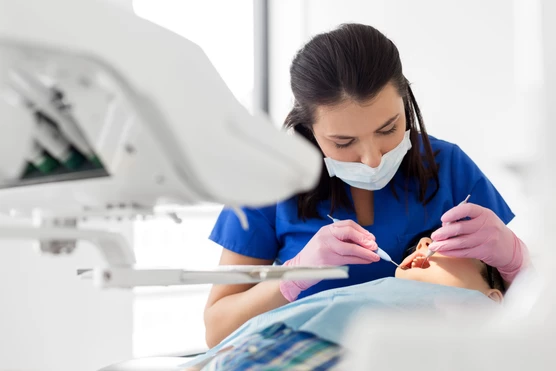Cracked Teeth – Preventing Catastrophe

We live in an age where we no longer use our teeth as tools; we have generous amounts of nutritious foods, an understanding of how to maintain our teeth, and access to modern dental care. Yet, in the face of all these positives, there is a looming challenge around the loss of teeth.
Obviously, it would be somewhat unrealistic to expect that teeth were maintenance-free.
I carry a toothpick with me because I have areas that consistently trap food, and I like to clear these immediately. Sometimes, there are causes around food impaction that may be modified to reduce or, on some occasions, eliminate the food impaction.
One of the areas that can consistently trap food is the space between the last and the second last tooth in the top jaw. If food impacts this site regularly, the pressure from the food impaction can orthodontically move the last tooth backwards – opening the space between the two last teeth and further exacerbating the impaction.
Frequently, I warn people that simply creating a “tight contact point” between the last and second last teeth is not enough: the last tooth does not have a tooth behind it – so it can drift backwards under the influence of the bite or food impaction. I have experienced episodes where we have “chased” this tooth backwards by remodelling the contact point repeatedly. This is undesirable, and the alternative may be to actually glue the two teeth together to stop the food impaction.
When there is a solid connection between teeth – no food will get caught between the teeth. However, the issue of home care now arises. The treatment of such a problem is frequently best resolved by doing a filling on both teeth that binds the teeth together with a “tunnel” that runs between the teeth at gum level allowing the flow of saliva and the use of interdental brushes to keep the area clean. Sure it is not ideal. However, the inflammation in the gum between the teeth frequently resolves itself by virtue of no food impaction and easy, effective cleaning, which patients are more likely to stick with.
This article was originally published here at intouch Magazine.
DR ALEX HUSZTI BelleDental
Alex has had a career focused on low-biologic cost reconstructive cosmetic dental care – common sense teeth for life. Alex services clients in the Hunter Valley, Newcastle, Lake Macquarie and Maitland areas.




